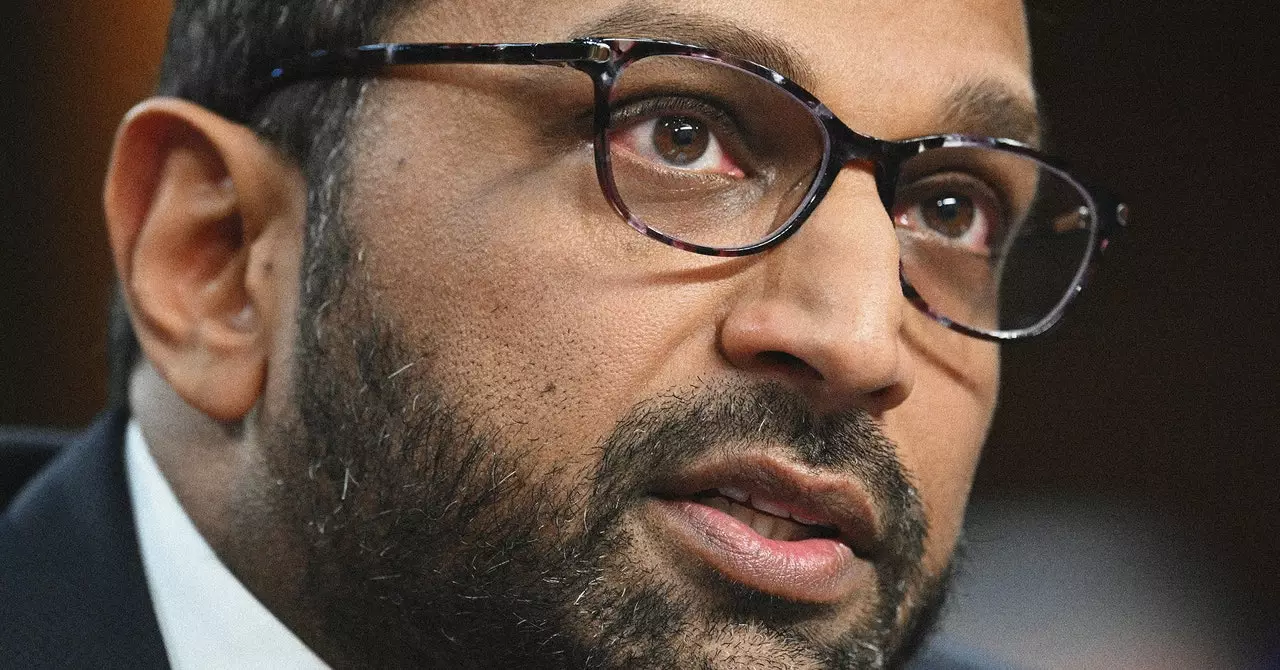Kash Patel, nominated by former President Donald Trump to lead the Federal Bureau of Investigation (FBI), finds himself at the center of significant scrutiny due to his financial connections with Shein, a prominent yet controversial fast-fashion brand that originated in China. Recent investigative findings have disclosed that Patel possesses stocks valued between $1 million to $5 million in a company that oversees Shein. This revelation has raised alarms within the realm of political ethics, highlighting concerns about potential conflicts of interest should he be confirmed to lead a federal agency tasked with justice and law enforcement.
The ties between Patel and Shein began to surface shortly after he commenced consulting for the company in early 2024, a mere month before Shein engaged the services of a lobbying firm where Pam Bondi, Trump’s attorney general, was employed. This timeline suggests a calculated maneuver that raises questions about the integrity of the consulting relationship. While Patel has declared his willingness to retain his shares in Shein upon potentially taking office at the FBI, the ethical implications cannot be ignored. Traditional practices often demand that individuals in such high-profile positions divest or recuse themselves from any matters that could directly impact their financial interests.
Patel’s stake in Shein consists of restricted stock units (RSUs)—a form of compensation typically granted to employees that does not allow for immediate monetization. These RSUs reportedly began vesting on February 1 and are set to be disbursed on a quarterly basis. Legally, Patel is not compelled to disengage from these holdings until a direct conflict of interest is identified. However, ethics experts argue that the appearance of impropriety warrants a proactive approach. Jordan Libowitz, an official from the Citizens for Responsibility and Ethics in Washington, indicated that while no immediate legal constraints exist, the optics are troubling. The expectation from the public and the Senate is that elected officials act with transparency and integrity, particularly in cases where business relationships intermingle with governmental duties.
Shein itself has been the focus of significant controversy, facing allegations of unethical business practices as it endeavors to establish a foothold in the U.S. market. The company has been scrutinized by both the media and regulatory bodies, especially regarding its labor practices and environmental impacts. For instance, in February of the same year Patel began his consultation, Senator Marco Rubio vocally opposed Shein’s planned IPO, advocating for a halt to its financial ambitions until clearer ethical guidelines could be established. These issues further complicate Patel’s association with the fashion giant, as his leadership at the FBI could intersect with ongoing investigations and health regulations affecting Shein.
Despite the growing concern surrounding Patel’s financial entanglements, officials from Trump’s transition team assert that Patel has been forthcoming in addressing inquiries from lawmakers. Arjun Mody, a member of this team, emphasized that the Senate has thoroughly examined potential conflicts of interest. Nevertheless, as public trust in government institutions wanes, there is increasing pressure for transparency. The expectation for Patel to divest from or recuse himself from matters involving Shein is not merely a legal obligation but a moral one in a democracy reliant on ethical governance.
The looming confirmation of Kash Patel as the FBI’s head presents not only an examination of his qualifications and intentions but also a critical look at the intersections of finance, politics, and ethics. As more information becomes available and scrutiny continues, it is essential for Patel and other government officials to navigate these treacherous waters with utmost integrity. The question lies not just in what is legal, but in what is expected of leaders in an age where transparency and ethical considerations are paramount to public confidence in governmental institutions. Without decisive action to mitigate conflicts of interest, the path ahead will likely be fraught with skepticism and distrust.

